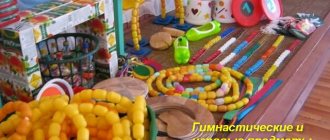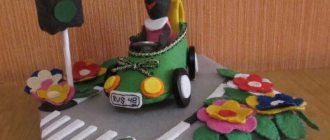How can a school involve parents in the educational process (and why is this necessary?). Experience of teachers from the USA
On Monday, January 18, Russian schoolchildren are returning to class en masse. Teachers are worried: how will everything be after several months of distance learning? Have children become unaccustomed to full-time studies? Will they be able to quickly change the regime? And this is the case when both children and teachers need parental support. Together with teachers from the USA, we are figuring out how to include moms and dads in the educational process.
Useful Mela newsletter twice a week: Tuesday and Friday
SUBSCRIBE
Why should parents get involved in school life?
According to American research by the National Education Association and the National Center for the Prevention of School Expulsion, active parental participation in the educational process affects children's academic performance.
Schoolchildren whose parents support them in their studies improve their attendance and behavior, and develop social skills faster. In addition, it is easier for them to adapt to changes and they are more likely to enroll in a university. In fact, the more parents are involved in school activities, the more successful their child will be.
There are two ways to involve parents in the educational process. Firstly, at the micro level, when the teacher personally communicates with the parents of each student. Secondly, at the macro level, when communication with families is established by a school or educational complex.
How can a teacher involve parents in learning?
Parents are usually busy all the time, constantly working. Sometimes they find it difficult to find time to go to a meeting or take their child to school, let alone actively participate in the life of the class. How, then, to involve them in learning? Heather Wolpert-Gavron, a Los Angeles high school English teacher, offers “8 Ways to Engage Parents in the Classroom” that educators can use both in the classroom and remotely.
- Praise.
Call your parents not only to tell them about the camera being turned off during an online lesson or about unfinished homework. Let them know about your child’s successes, no matter how insignificant they may be. Emphasize the student's strengths and praise him. Parents should see you as an ally, not an adversary. - Atmosphere.
The school should cooperate with parents, not irritate them. It is worth being creative not only in teaching, but also in interacting with families. Talk to parents not only at meetings, but also communicate with them in instant messengers. Try to maintain informal communication and a positive atmosphere. - Individual approach.
Choose a time and method of communication that is convenient for most parents. Some of them may not have a computer, and others may not know how to use email. Remember that every family is different and has different circumstances. - "Piece of pie".
Simplify everything. It is difficult for parents to participate in the educational process. For example, announcements should hang not only at the entrance to the school, but also on the website and in the chat as a pinned message. Communication through several channels requires a lot of effort from both the teacher and the administration, but this way parents will be more actively involved in the life of the school. - Consistency.
Do not give up. Continue sending newsletters, posting video tutorials, calling and praising. Teachers also have little time and a heavy workload, but our persistence will help increase parental activity. - Causes.
Explain your decisions. For example, you follow the principle of restorative justice and when resolving conflicts, you prioritize the well-being of children rather than scolding them. Remember, you may be misunderstood and thought that there is simply no discipline at school. Talk about your goals for changing anything. Project-based learning or a new program? Explain to your parents why and why this happened. - Personality.
Show that you are human too. If students know you as more than just an educator, they will become your allies and help bridge the gap between school and home. - Support.
School should be seen as more than just a place to get grades. It also has clubs and additional lessons, and organizes after-school activities. The school should provide support to parents; it is one of the most important public institutions. The above tips may not be easy to put into practice. But the teacher should not do this alone; he must learn to collaborate with active parents, students and school administration.
How can schools involve parents in their lives?
Not only the teacher, but the entire school or educational complex can take measures to establish communication with parents and involve them in the educational process.
This can be done in several ways. For example, conduct a survey of parents to understand their needs, find out what they need to help their children. At the same time, ask teachers what kind of support they would like to receive from students' families. The school can also broadcast large events or even lessons so parents can learn along with their children.
It is worth making sure that parents know how the school website works, what social networks the school has, and understand where to look for information
For example, the San Gabriel Unified School District, where Heather Wolpert-Gavron works, created the Parents as Partners program. They conducted several webinars for schoolchildren and their families, where experts talked about how to communicate and maintain friendships (including online), resist bullying, and control screen time.
Kindergarten No. 32 “Yolochka”
The Federal State Educational Standard for Preschool Education directs teachers to interact with parents on issues of the child’s education, directly involving them in educational activities for the successful implementation of the basic general education program of the preschool educational institution.
Within the framework of a single educational space, which implies interaction and cooperation between teachers and parents throughout the child’s preschool childhood, we have established.
The goal is to interest parents as much as possible and involve them in active participation in the educational activities of the kindergarten and age group through the organization of various forms of cooperation aimed at interested and close interaction of all participants in educational relations.
In order to effectively interact with parents, an annual work plan is being developed with a set of activities aimed at involving parents in educational activities.
In my activities to interact with the families of students, I use both traditional and active innovative educational forms of cooperation in accordance with the Federal State Educational Standard for Education:
Informational and analytical: collecting a data bank on the families of pupils - aimed at identifying the interests and requests of parents: questionnaires, social surveys, tests, trainings, surveys on any topic.
Visual and informational: the form is used to familiarize yourself with the work of the kindergarten, the life of the group, the features of education and development through a presentation on the official website of the preschool educational institution, groups in Contact on the Internet; parental corners, including: regulatory documents, notices and advertisements, information sheets, instructions for parents, folders - moving.
During the academic year, work concerns issues related to solving the problems of the annual plan of the preschool educational institution for the current academic year. Through surveys of parents, publication of information folders and stands, we try to explain to parents the importance of the issues under consideration in the development of the child. The contents of the travel folders include a section from the experience of family upbringing and child development.
Educational: they provide an opportunity to acquaint parents with the age and psychological characteristics of children through: family clubs, round tables, thematic and individual consultations with preschool education specialists, open classes with children, pedagogical conversations, master classes, parent meetings using photo reports, multimedia, video presentations about life of children in the group; a children's library for children and parents has been created on the basis of a preschool educational institution - “My Fairy-tale World”, where a collection of not only children’s fiction is collected, but also a collection of pedagogical and psychological literature popular for parents, magazines “For you parents”, which parents can take home for a certain time.
Parents are involved in the preparation of parent-teacher meetings in order to develop parental interest and initiative; at meetings, parents share their experiences in family education.
“Parent is a guest of the group”: allows you to most fully reveal the content of the teacher’s activities, clearly show effective forms, methods and techniques of working with children - parents are involved in organizing and conducting educational activities, routine moments; participate in the “Week of getting to know the profession of parents”, where they talk about their profession, use modern methods, information and communication technologies; read books to children, “We have fun playing together” - organize games, etc.
Visiting a kindergarten during the “Open Day”: at this time, parents have a unique opportunity to “live” the whole day in a preschool institution with their child - watch and take part in the morning warm-up, attend classes, go for a walk, and have a meal , doing gymnastics after a nap, etc.
Participation of parents in children's research and project activities: by participating in the implementation of the project, parents are not only sources of information, real help and support for the child and teacher in the process of working on the project, but also become direct participants in the educational process, enrich their teaching experience, and experience a sense of ownership and satisfaction from your successes and the achievements of your child. The defense of family projects (the result of work on the project) is of a creative nature: a message with visual information, a presentation, an exhibition, a photo report, etc.
Joint creative activities with children: thematic exhibitions, competitions, tasks organized as part of the implementation of projects in educational areas of the main general education program of the preschool educational institution: exhibitions, competitions and tasks allow parents and children to organize joint creative activities at home (draw a picture, make a craft, make a model, design a photo collage , photo exhibition, compose a fairy tale, prepare a costume, etc.); participation of parents together with children in competitions at different levels - republican, municipal, and within preschool educational institutions. In the process of joint preparation of materials, adults and children get to know each other even better; the family has another opportunity to talk about the child, about his life in the group and at home. Therefore, joint creativity is another way to build relationships between educators, parents and children.
Leisure: thematic and creative - used to establish emotional contact between teachers, parents and children: joint preparation of children's parties, leisure activities, themed days, quizzes, literary evenings and the participation of parents in them; participation in creative workshops of preschool educational institutions; “Hour of Family Hobbies” - parents conduct master classes on learning how to master their needlework, mastering non-traditional drawing techniques, teaching hair braiding, etc.; “Visiting a fairy tale” - involving parents in organizing theatrical productions.
Help in replenishing the developmental subject-spatial environment of the group, the walking area: the “Gifts for the Group” campaigns (toys, books, magazines, games that are no longer needed at home, but may well be useful when organizing educational activities in the preschool) have become traditional in the preschool educational institution; production of didactic materials, manuals for classes and free play activities of children.
Work in the Parent Committee of the group: in the group, the Parent Committee is created from among interested parents and provides assistance to educators: creating conditions for educational activities in the group, organizing tea parties, participating in labor landings, cleanup days “Day of Good Deeds”, “Creative Weekend” for landscaping the site and group premises, organization of children's events outside the preschool educational institution: organization of excursions, visits to theaters, museums, libraries, sports facilities.
The introduction of innovative forms of interaction between preschool educational institutions and families of pupils is facilitated by:
- Positive emotional attitude of teachers and parents to work together to raise children, uniting participants in educational relations.
- Taking into account the child’s individuality, because The teacher, constantly maintaining contact with the family, knows the characteristics and habits of his pupil and takes them into account when working, which, in turn, leads to increased efficiency of the pedagogical process.
- Independent choice of parents of forms and directions in the development and upbringing of the child, which they consider necessary. In this way, parents begin to understand the responsibility they bear for raising their children.
- Strengthening intra-family ties.
- Possibilities of implementing a unified program for the upbringing and development of children in preschool educational institutions and families.
Innovative forms of working with parents of the class teacher
Innovative forms of working with parents
The effectiveness of raising a child greatly depends on how closely the school and family interact. Class teachers play a leading role in organizing cooperation between school and family. It is their work that determines the extent to which families understand the policies pursued by the school in relation to the upbringing and education of children and participate in its implementation. At the same time, the family should be considered as the main customer and ally in raising children, and the combined efforts of parents and teachers will create favorable conditions for the development of the child.
The interaction between the family and the class teacher is based on the principles of mutual trust and respect, support and assistance, patience and tolerance towards each other. When interacting with a group of parents, the class teacher must show courtesy and correctness, and the ability to restrain his emotions; only then can you count on the support of your parents in all your endeavors.
It is undeniable that the individual work of the class teacher should come to the fore today. It is in this case that a conversation becomes possible, a discussion of the problems of just one child. Here I want to share my little “secret”: in many articles you can read the advice to start a conversation with parents by praising the child. And this is absolutely correct advice! Moreover, it is also better to end the conversation with praise. But I want to say this: tell your parents that you are asking them for a meeting (note that you are not “calling” them to school, but rather “asking for a meeting”), because you really need their advice, since no one is better than them knows what approach is needed to their child (and, in principle, this is true!). And if parents understand that the class teacher is sincerely interested in their opinion, they will be willing to make contact.
The content of cooperation between the class teacher and parents includes three main areas:
psychological and pedagogical education of parents;
involvement of parents in the educational process;
participation of students' families in managing the educational process at school.
Psychological and pedagogical education of parents can be organized using the following forms of work:
parent universities;
conferences;
individual and thematic consultations;
parent meetings;
trainings.
involve parents in the educational process using the following forms of activity:
creativity days for children and their parents;
open lessons and extracurricular activities;
assistance in organizing and conducting extracurricular activities;
Parents are frequent guests at extracurricular events. These are holidays dedicated to International Women's Day on March 8, Mother's Day, and amateur art concerts. All this allows parents to get to know their children better and discover yet unknown aspects of their interests, hobbies, and talents.
Forms of leisure: joint holidays, preparing concerts, watching and discussing films and performances. In addition, not even systematic, but individual collective activities of the class, carried out together with parents, have a huge educational effect. The work of a teacher with parents is impossible without cooperation and the active involvement of parents in the educational process, which involves the organization of various clubs, sports sections, and participation in club meetings. Clubs can also operate outside of school.
The participation of parents in managing the educational process can be organized using the following forms of activity:
participation of class parents in the work of the school council;
participation of class parents in the work of the parent committee.
I would like to dwell in more detail on some innovative forms of working with parents that I use in my work as a class teacher.
An interesting and fairly new form of working with parents is parent evenings. Parents' evenings are appropriate to hold when the class teacher has just begun to form the parent team of the class, when children have just crossed the threshold of primary school, but this form is very good when children move from primary school to secondary education, this is especially important during the adaptation period, the transition to 5th grade .
Parents' evenings are a form of work that perfectly unites the parent team. They are usually held 2 times a year, either in the presence of children or without them.
The topics of our parents' evenings were as follows:
My child's friends.
Holidays for our family.
Children's questions that baffle us.
Photos of our childhood.
Such topics allow you not only to express your opinion, but also to hear something useful for yourself in the reasoning of other parents, draw certain conclusions, learn something, and take something into your educational arsenal. Parents' evenings bring families together, allow them to see adults and children in a different light, and help overcome mistrust and hostility in relationships between adults and children.
A fairly effective form of creating a culture of being a parent is parent training. This is an active form of work with those parents who are aware of problematic situations in the family, want to change their interaction with their own child, make him more open and trusting, and understand the need to acquire new knowledge and skills in raising a child.
Parent training is usually carried out by a school psychologist. Based on the results of the training, the psychologist conducts an interview with the class teacher and gives him recommendations on organizing interaction with each child and each family who participated in the training.
In addition to trainings with students and their parents, a good form of parent education is the parent ring. This is one of the discussion forms of communication between parents and the formation of a parent team. The parent ring is held with the aim that many parents can confirm the correctness of their methods of education or conduct an audit of their pedagogical arsenal, think about what they are doing correctly in raising their child and what is not quite right.
The usefulness of such meetings of parents also lies in the fact that they allow you to remove all sorts of behind-the-scenes conversations among parents on the organization of the educational space of their children and the content of the educational process.
The themes of parent rings can be very diverse. For example, you can suggest the following:
Is it possible to punish a child with your own home?
What to do if dad is not interested in raising his own child?
Temptations and ways to overcome them.
"Pros and cons" of school uniforms.
Difficulties of a school lesson. What are they?
A workshop is a form of developing parents’ pedagogical skills in raising children, effectively solving emerging pedagogical situations, and a kind of training in the pedagogical thinking of parent-educators. During the pedagogical workshop, the teacher offers to find a way out of any conflict situation that may arise in the relationship between parents and children, parents and school, etc., to explain his position in this or that supposed or actually arisen situation.
Role-playing games are a form of collective creative activity to study the level of development of the participants’ pedagogical skills. Approximate topics for role-playing games with parents could be the following: “Morning in your house”, “The child has come from school”, “Family council”, etc. The methodology of role-playing games involves determining the topic, the composition of the participants, the distribution of roles between them, and a preliminary discussion of possible positions and behavior options for game participants. At the same time, it is important to play out several options (positive and negative) for the behavior of the game participants and, through joint discussion, choose the optimal course of action for the given situation.
Parent readings
- a very interesting form of work with parents, which gives parents the opportunity not only to listen to teachers’ lectures, but also to study literature on the problem and participate in its discussion. Parents read books and then use recommended reading in parent readings. A feature of parental readings is that, when analyzing the book, parents must express their own understanding of the issue and changes in approaches to solving it after reading the book.
Internet consultations.
Parents have the opportunity to receive information about school events and get answers to their questions on the school website.
The exchange of various interesting materials, links to thematic sites both between the teacher and the family, and between parents also occurs via the Internet.
Microgroup work with parents.
In this case, I invite to the meeting only those parents whose children have similar personal or educational problems.
First effect. It’s very difficult to say something painful out loud for the first time. But, if parents voice their problem and hear that other families have almost the same state of affairs, then “a stone will fall from their souls” - they are not alone in this problem!
Second effect. At the microgroup meeting, those parents who have already managed to cope with the problem also join in the conversation. They share their experiences (even negative ones), and the rest of the parents form the belief that everything will work out and everything can be fixed. This allows them not to “chew emotions”, but to move on to searching for specific steps to get out of a problematic situation.
Third effect. I am not collecting all the parents from the class - only a part. Therefore, the conversation turns out to be behind the scenes, private. Rodi t
They were confident that other mothers and fathers would not know about the problems of their children.
Both traditional and non-traditional methods, forms of interaction between the class teacher and the parents of students have one common goal - to make the growing individual happy as they enter modern cultural life.



